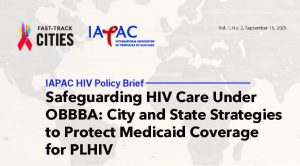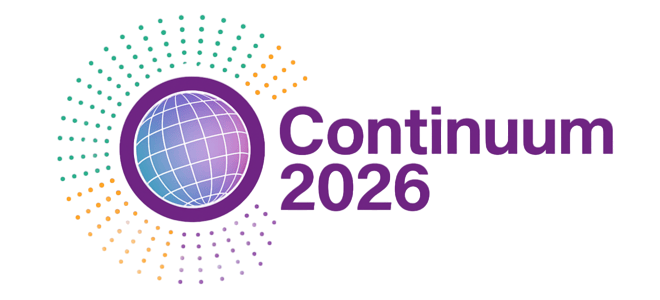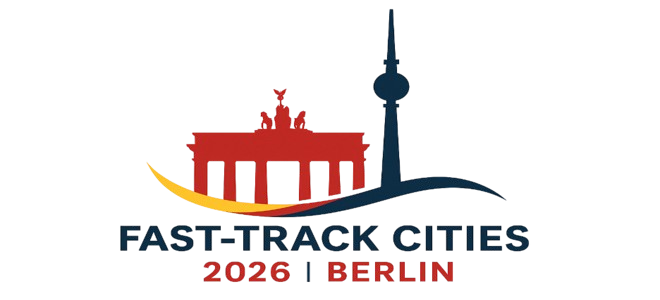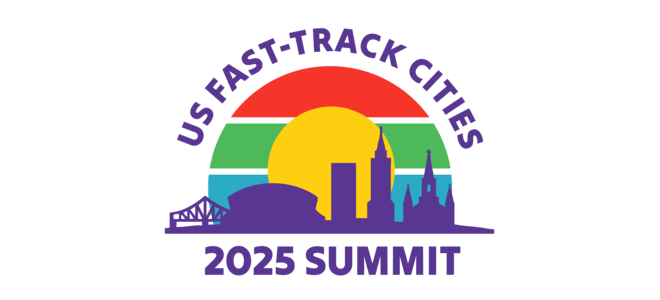
To download this brief in PDF format, click here.
The One Big Beautiful Bill Act (OBBBA) introduces sweeping changes to Medicaid, including eligibility and coverage for adults in the Affordable Care Act (ACA) Medicaid expansion group. Starting January 1, 2027, or sooner if states choose earlier implementation, adults in this group will be required to meet work requirements at both application and during coverage.
While certain exemptions exist, their breadth and accessibility will be determined at the discretion of the Secretary of the Department of Health and Human Services (HHS), and by state-level decisions. The Centers for Medicare & Medicaid Services (CMS), as the federal agency that administers Medicaid, will play a pivotal role in interpreting and implementing these provisions, issuing guidance to states, and overseeing state compliance.
For people living with HIV (PLHIV), Medicaid is not simply an insurance program; it is the lifeline that enables uninterrupted access to antiretroviral therapy, regular laboratory monitoring, and the wraparound services essential to sustaining viral suppression and allows PLHIV to live healthy, full lives. Any disruption – whether caused by missed reporting deadlines, procedural terminations, or new cost-sharing obligations – risks cascading consequences for individual health, community transmission rates, and the broader goal of ending the HIV epidemic.
Fast-Track Cities and priority jurisdictions participating in the federal Ending the HIV Epidemic (EHE) initiative face heightened vulnerability. In many of these communities, Medicaid is the largest single payer nationally for HIV care and plays a critical role in Fast-Track Cities and other jurisdictions hit hard by the HIV epidemic.” Without deliberate safeguards, OBBBA’s provisions could erode hard-won progress in HIV prevention and treatment, widening health inequities and increasing costs for state and local health systems.
This IAPAC HIV Policy Brief – Safeguarding HIV Care Under OBBBA – outlines the major risks of and presents actionable strategies for states, cities, and providers to prevent OBBBA Medicaid work requirements from undermining decades of progress in HIV care.
KEY OBBBA PROVISIONS IMPACTING PLHIV
OBBBA’s changes to Medicaid represent a major restructuring of eligibility, reporting, and cost-sharing rules for adults covered under the ACA’s Medicaid expansion, creating far-reaching implications for both beneficiaries and state Medicaid programs. For PLHIV, these changes carry heightened stakes because Medicaid is often their primary or sole source of comprehensive health coverage, including access to antiretroviral therapy (ART), regular laboratory monitoring, and essential supportive services. OBBBA’s changes to Medicaid are significant for expansion adults and particularly consequential for PLHIV:
- Work Requirements: Expansion adults must complete 80 hours per month in employment, job training, education, or community service. States will determine verification systems, with federal law requiring at least semi-annual reporting.
- Exemptions from Work Requirements: Federal categories include individuals who are “medically frail,” “special medical needs,” with a “serious or complex medical condition,” pregnant or postpartum, certain caregivers, and those facing short-term hardship. The law gives the Secretary of HHS considerable discretion to define and implement exemptions, but there may be opportunities at the state-level to include PLHIV. Of note, states may also be able to secure exemptions to start work requirement provisions later than January 2027.
- Cost-Sharing: OBBBA requires deductions, cost-sharing, or similar charges determined appropriate by the state (in an amount greater than $0) with respect to certain care items or services provided beginning October 1, 2028. Certain services are exempt, including primary care and mental health visits, but many HIV-related visits and labs could carry copays. Providers may deny service for nonpayment but are not obligated to do so, and hardship waivers may apply.
- Eligibility Changes: Retroactive eligibility is reduced from 90 to 30 days. Mandatory redeterminations every six months will increase the administrative burden for both beneficiaries and agencies, raising the risk of coverage gaps.
By introducing work requirements, shortening retroactive eligibility, increasing the frequency of redeterminations, and allowing new forms of cost-sharing, OBBBA alters the stability and predictability of coverage that PLHIV rely on to maintain viral suppression and prevent disease progression. These shifts are not merely administrative adjustments; they represent systemic changes that could disrupt care continuity, undermine public health goals, and disproportionately affect populations already facing significant barriers to healthcare access.
RISKS FOR PLHIV IN FAST-TRACK CITIES AND EHE JURISDICTIONS
The impact of these changes will be amplified in urban centers and other high-burden areas where Medicaid is a central pillar of the HIV response. Research from previous state-level experiments with work requirements underscores the risks: disenrollment driven not by actual failure to meet requirements but by procedural terminations due to incomplete paperwork, missed deadlines, or misunderstandings. For PLHIV, such interruptions can mean missed medication doses, viral rebound, higher transmission risk, drug resistance, and preventable opportunistic infections.
Cost-sharing also poses a substantial barrier. Even modest copays can deter low-income individuals from accessing care, particularly when compounded by housing instability, food insecurity, and other social determinants of health. In communities where HIV prevalence is high and health inequities are entrenched, these barriers will further widen disparities in health outcomes. Over time, such financial obstacles can erode treatment adherence, compromise viral suppression, and reverse hard-won public health gains in HIV prevention and care.
The combination of shorter retroactive eligibility and more frequent redeterminations will increase churn – people cycling on and off Medicaid – resulting in administrative inefficiencies and lapses in care. For PLHIV, where continuity of care is paramount, churn has particularly dangerous consequences. Each coverage gap, even if brief, can interrupt medication access, disrupt care coordination, and heighten the risk of viral rebound and transmission.
POLICY AND PRACTICE RECOMMENDATIONS
The following recommendations are designed to help states, cities, providers, and managed care organizations implement OBBBA’s provisions in a way that protects continuous Medicaid coverage for people living with HIV, particularly in Fast-Track Cities and EHE priority jurisdictions. They reflect both the flexibility that OBBBA affords, and the lessons learned from prior State-level work requirement experiments, where procedural terminations rather than true noncompliance drove most coverage losses.
By broadening exemptions, streamlining verification processes, reducing reporting burdens, and safeguarding against financial barriers to care, these strategies aim to preserve uninterrupted access to life-saving HIV treatment and prevention services. Implementing these measures proactively – before work requirements and related provisions take effect – will be critical to maintaining personal wellness, health equity, preventing viral rebound, and sustaining progress toward achieving Fast-Track Cities and EHE targets.
States likely will have some flexibility to protect PLHIV from coverage loss. They should:
- Acknowledge PLHIV are living with a serious and complex medical condition and include them in “medically frail” exemptions when states submit implementation plans to CMS.
- Broaden the definition of qualifying activities such as volunteer activities and care settings that meet work exemption requirements.
- Accept multiple forms of proof for exemption eligibility, including provider attestation, electronic health records, and self-attestation.
- Minimize reporting burden and streamline the certification process to the federal minimum and simplify submission methods to include phone, online, and mail options.
- Adopt a phased or delayed rollout to ensure systems and safeguards are operational before enforcement of the work requirements begins.
- Monitor county unemployment rates so that counties with unemployment rates >8% or 1.5 times the national unemployment rate can request the State submit a waiver to HHS.
Fast-Track Cities and EHE jurisdictions can mitigate OBBBA’s impact by integrating preparedness into HIV response plans. Local strategies should include:
- Establishing Medicaid navigation hubs within clinics and community-based organizations to assist with exemption processing, reporting, and redetermination.
- Training front-line staff to proactively identify and support beneficiaries at risk of disenrollment.
- Launching targeted outreach campaigns to educate PLHIV about their rights, responsibilities, and available exemptions.
- Convening partnerships between managed care organizations (MCOs), providers, and local health departments to coordinate outreach, share data, and resolve coverage gaps quickly.
- Dedicate a taskforce that establishes standard and emergency protocols overseeing partnerships and examines challenges for marginalized communities.
- Develop contingency plans in consultation with community and city services for emergencies and disruptions for whole-city events or specified individual emergencies.
- Coordinate with Business Bureaus and Chambers of Commerce to that adjust low-skill or -level entry or part-time employment opportunities that translate to insurance coverage.
- Launch a repository of volunteer opportunities that lists opportunities coupled with a universal attestation form to create a pathway for maintaining Medicaid qualification.
- Fully ban the inclusion of incarceration questions on job applications possible for jobs that meet the minimum requirements of workforce participation (“ban the box”).
Providers play a critical role in mitigating harm, including:
- Implement “treat first” policies to ensure care is not withheld due to unpaid copays.
- Use internal hardship waivers to remove financial barriers where possible.
- Flag patients at risk of losing coverage and connect them with Medicaid navigators before disenrollment occurs.
CONCLUSION
OBBBA’s Medicaid provisions present a clear threat to continuous coverage for PLHIV if implemented without safeguards. But these risks are not inevitable. By using every available lever – broad exemptions, streamlined verification, flexible reporting, proactive outreach, and financial protections – States and cities can ensure that Medicaid remains a stable, reliable source of HIV care. Proactive, equity-focused implementation will be essential to protecting public health gains and sustaining momentum toward ending the HIV epidemic.
Fast-Track Cities and EHE jurisdictions are uniquely positioned to lead in this effort, demonstrating that work requirements can be implemented in a way that protects vulnerable populations, preserves public health gains, and sustains momentum toward ending the HIV epidemic. The tools exist; the challenge is mobilizing the political will and operational capacity to use them effectively. The cost of inaction will be measured not only in lost coverage, but in preventable illness, higher transmission rates, and progress undone. The time to act is now.
DISCLOSURE: This IAPAC HIV Policy Brief is made possible through support from ViiV Healthcare.
References:
- One Big Beautiful Bill Act of 2025, Pub. L. No. 119-106. (2025)
- Kaiser Family Foundation (KFF). Medicaid and HIV: A National Analysis. KFF. (2021)
- Department of Health and Human Services (HHS). Medicaid Churning and Continuity of Care. Evidence and Policy Considerations Before and After the COVID-19 Pandemic. HHS. (2021)
- Sommers BD, Goldman AL, Blendon RJ, et al. Medicaid work requirements – results from the first year in Arkansas. New England Journal of Medicine. 2019;381:1073-1082.
- Ku L, Coughlin TA. Sliding-scale premium health insurance programs: Four states’ experiences. Inquiry. 1999;36(4):471-480.
- Kaiser Family Foundation (KFF). Key Issues in State Implementation of Medicaid Expansion: Cost Sharing and Access. (2017)
- Department of Health and Human Services (HHS). Panel on Antiretroviral Guidelines for Adults and Adolescents. Guidelines for the Use of Antiretroviral Agents in Adults and Adolescents with HIV. HHS. (2024)





